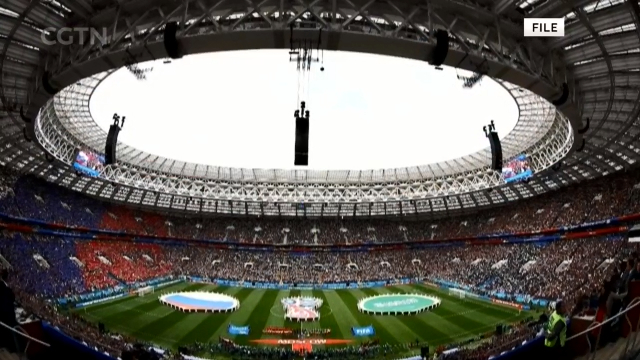
16:18, 20-Jun-2018
2018 FIFA World Cup: Politics at play on pitch during tournament
02:05

The organizers of large international sporting events like the World Cup always say their aim is to avoid politics. And political issues always seem to find their way into the major storylines surrounding the competition. To find out why, as the old saying goes, follow the money, which is what CGTN's Yasmeen Alamiri did from Washington.
The millions of people watching the 32 teams compete for the World Cup will also bear witness to international politics at play. World Cup 2018 is hosted by Russia-a country that has captured headlines recently for both its domestic and international politics and policies. In March, the UK imposed a diplomatic boycott of the tournament, refusing to send ministers or members of the royal family to the World Cup following the poisoning of a Russian former spy in Britain. It is not, however, the first time politics and the World Cup have collided.
WES HARRIS BUSINESS OF SOCCER MANAGING EDITOR "Soccer is inherently political because it is the world's game."
History has provided many examples. West Germany hosted the World Cup in 1974 and played East Germany while a concrete wall still separated the two in Berlin. Another 15 years would pass until its fall. Argentina hosted the tournament in 1978 - two years after a coup - and amid widespread reports of extrajudicial killings and torture carried out by its military dictatorship. In 1982 the UK considered - but ultimately did not - pull its teams out of the World Cup held in Spain over its island war with Argentina called the Falklands by Britain, and Malvinas by Argentina.
YASMEEN ALAMIRI WASHINGTON "Where there are dozens of teams, hundreds of participants, millions of viewers, and billions of dollars to be made, politics is also sure to be present. Yasmeen Alamiri, CGTN, America, Washington, DC."

SITEMAP
Copyright © 2018 CGTN. Beijing ICP prepared NO.16065310-3
Copyright © 2018 CGTN. Beijing ICP prepared NO.16065310-3